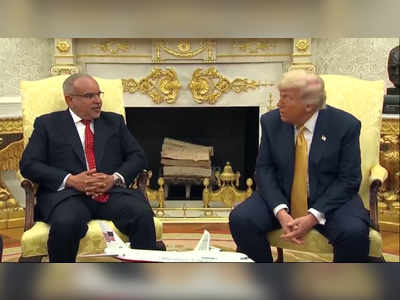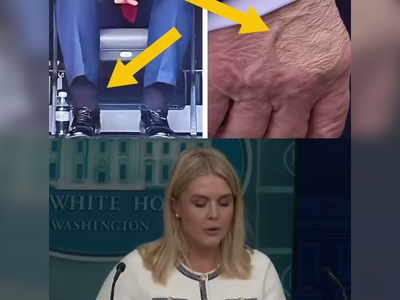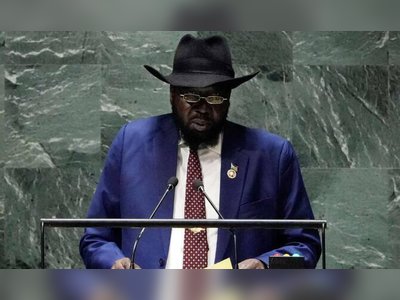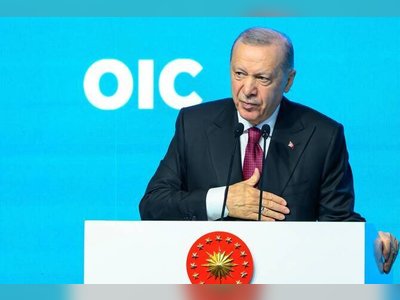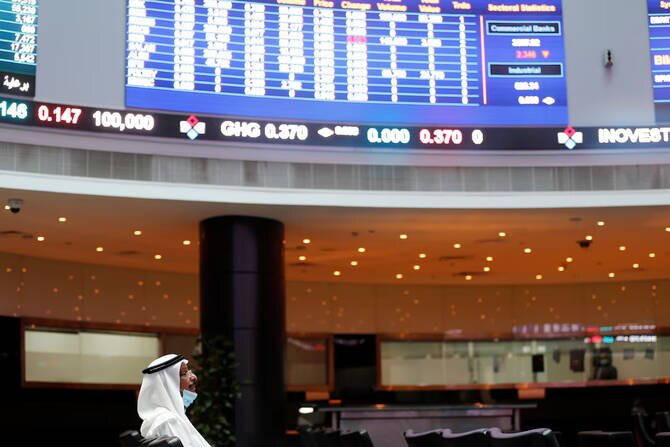
Gulf Equities End Mixed as Trump Escalates Trade War with Tariff Threats
Investors Seek Clarity on Global Trade Developments Following US President's Announcement
Gulf equities concluded a mixed trading session on Sunday, with stock performance remaining relatively subdued amid heightened trade tensions.
The fluctuating market activity came in response to the latest round of tariff threats issued by US President Donald Trump, which have intensified the ongoing global trade war.
Trump's announcement on Saturday indicated his intent to impose a 30 percent tariff on imports from Mexico and the European Union, effective August 1.
Additionally, he proposed increasing tariffs on other countries to a range of 15 percent to 20 percent, up from the current rate of 10 percent.
These moves are part of his broader strategy to address trade imbalances and protect American industries.
The Saudi Arabian stock market's benchmark index experienced a minor decline of 0.2 percent, as investors were cautious due to uncertain sector performances ahead of key earnings releases.
Notably, ACWA Power, a significant player in the utilities sector, saw its share price decrease by 2.4 percent following the completion of its rights issue offering.
In Qatar, market activity remained calm with the benchmark index closing flat.
Despite this, Vodafone Qatar managed to gain 1.2 percent.
The overall market sentiment was characterized by a wait-and-see approach from investors regarding the potential effects of the tariffs on global economic conditions.
The US Federal Reserve's upcoming interest rate decision holds significance for Gulf countries as their currencies are pegged to the dollar.
Any changes in interest rates could impact monetary policy and influence investor confidence.
As such, market participants remain closely monitoring the Fed's actions.
Elsewhere in the region, Egypt's blue-chip index experienced a minor decline of 0.8 percent, largely due to Commercial International Bank's 1 percent drop in value.
This downturn followed the Egyptian central bank's decision to keep key interest rates unchanged on Thursday, despite easing inflation rates.
The decision was seen as a signal that the country may continue with its monetary policy adjustments in the near future.
The fluctuating market activity came in response to the latest round of tariff threats issued by US President Donald Trump, which have intensified the ongoing global trade war.
Trump's announcement on Saturday indicated his intent to impose a 30 percent tariff on imports from Mexico and the European Union, effective August 1.
Additionally, he proposed increasing tariffs on other countries to a range of 15 percent to 20 percent, up from the current rate of 10 percent.
These moves are part of his broader strategy to address trade imbalances and protect American industries.
The Saudi Arabian stock market's benchmark index experienced a minor decline of 0.2 percent, as investors were cautious due to uncertain sector performances ahead of key earnings releases.
Notably, ACWA Power, a significant player in the utilities sector, saw its share price decrease by 2.4 percent following the completion of its rights issue offering.
In Qatar, market activity remained calm with the benchmark index closing flat.
Despite this, Vodafone Qatar managed to gain 1.2 percent.
The overall market sentiment was characterized by a wait-and-see approach from investors regarding the potential effects of the tariffs on global economic conditions.
The US Federal Reserve's upcoming interest rate decision holds significance for Gulf countries as their currencies are pegged to the dollar.
Any changes in interest rates could impact monetary policy and influence investor confidence.
As such, market participants remain closely monitoring the Fed's actions.
Elsewhere in the region, Egypt's blue-chip index experienced a minor decline of 0.8 percent, largely due to Commercial International Bank's 1 percent drop in value.
This downturn followed the Egyptian central bank's decision to keep key interest rates unchanged on Thursday, despite easing inflation rates.
The decision was seen as a signal that the country may continue with its monetary policy adjustments in the near future.
